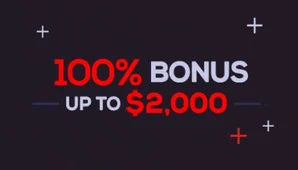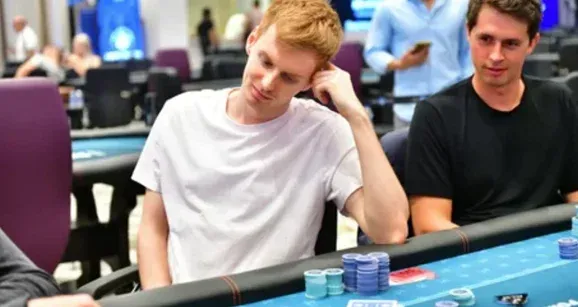Patrick Leonard once asked:
As a professional MTT player rank the following 5 in order of importance. You can say 2/4/5/3/1 for example.
1) Studying heads up
2) Having a mental game coach
3) Optimized Nutrition & Fitness
4) Volume
5) ICM understanding
Several dozen people responded, including many online and live poker regulars, plus cash game specialists and professional poker psychologists. We calculated the average score for each item, and also asked Pads' question to some of our community players and received the most detailed answers.
David "ODB" Baker: 4 2 5 3 1
4/2 tier 1 (good mental game not necessarily a coach, but could be a partner or friend)
5 tier 2
3/1 tier 3
Haley Hannah: 2 3 5 4 1
Psychology – Physical Condition – ICM – Game Volume – HU
A lack of understanding of ICM can be very costly, especially at final tables where we are occasionally playing for life-changing amounts of money.
Volume is a nice bonus, but high volumes of play don't always make good players. I know a lot of people who sit in every tournament and grind like crazy, but are absolutely no good.
I think big volumes become especially important at high stakes, in small fields (like the Poker Go series). The thing is that there is a rather limited circle of participants, and when you have beaten everyone and know everything about the peculiarities of their game, you become comfortable, it is easy to find the right rhythm, and so on.
Barry McGovern: 3 2 5 4 1
If you’re in a video game and want to make the highest performing character.
This is how it should be done.
Strong Foundation of health and mental clarity is most important to perform at highest output consistently
Gilles Simon: 4 5 2 3 1
Just showing up is literally half the work
Joao Simao: 4 5 1 2 3
4 have to be the 1st. With actual structures/ROI, if you don't play volume of MTTs, you are a gambler, not a professional.
Then 5 and 1.
2 and 3 have very different impact/importance for each player IMO.
Sam Greenwood: 4 1 5 3 2
I guess this depends on how you define "studying". You rarely play heads up, but getting proficient at Heads Up improves your understanding of how cEV poker works. Shocked that everyone is ranking it last.
Felipe Ramos: 3 ? ? ? ?
I don't know the right answer to this, but it is impossible (for me) to understand all my heroes not choosing option 3 as first. If you had put HEALTH, instead of Optimised N&F, I think that would be different.
Tony Dunst: 5 4 3 1 2
The mental side of tournaments is tough, but also simple in that you plan to win but expect to lose.
Jasonteam651: 1 ? ? ? ?
Replies are all sleeping on studying heads up.
Even just knowing correct preflop ranges makes a huge difference.
Also sharpens your whole postflop game whether it’s 3handed, full ring, etc, plus you'll win more money...
Feels underrated for overall growth.
Jamie Staples: 5 4 1 3 2
ICM, game volume, heads-up, physical fitness, psychologist.
Beriuzy: 3 5 2 4 1
Could trade the first two depending on stakes.
Volume doesn't mean much if you're slowly killing yourself with a bad foundation.
Jordan Smith: 4 ? ? ? ?
lol, none of these are important. The only one of note is volume, you have to at least play to earn a living, so in general, the more QUALITY volume put in the better. #’s 1&2 are truly lol for MTTs



Overall statistics for all answers in the topic, average score
Volume – 1.74
ICM – 2.23
Optimized Nutrition & Fitness – 3.23
Mental Game Coach – 3.78
Studying Heads Up – 4.01
Arseniy Karmatsky
Quite a variety of points – some concern the technical component of the game (HU/ICM), others – poker-related issues, so, in my opinion, it is not entirely correct to compare them with each other, but I will still try to make a rating for me personally:
1. Mental Game Coach:
I will replace "work with a coach-psychologist" with simply "psychological state". Since my B-game is significantly worse than A-game, and the performance is primarily influenced by the psychological state, I will put the state during the game in first place. If we narrow this point to the one formulated by Pads, then for me it is eliminated from the list, since I do not work with a coach-psychologist.
2. ICM:
This is a critical concept in MTTs, and ICM mistakes can be very costly. Different payout structures at different rooms/field sizes, tournament type (vanilla/PKO) – there are so many factors that affect bubble factors, and it's important to keep them all in mind.
3. Heads Up:
With the prevalence of PKO tournaments (expensive HU, in which you can’t even split, unless it’s partypoker of the late 10s), understanding the game in HU has a significant impact on the result in MTT, even despite the fact that the advantage in HU over another regular cannot be very significant.
4. Volume:
I'll put it quite low, since in MTTs above average limits, a large game volume can negatively affect its quality (Pads is a unique character in this sense, of course). In inexpensive tournaments, this point will clearly be higher, since kilofields can only be beaten by grinding.
5. Optimized Nutrition & Fitness:
Probably, if you go to extremes (like not moving at all, or overtraining before the session, or eating really badly), then it can be a very important point. However, I have always been average in this – I exercised moderately and ate regular home-cooked food (no diet, but no junk food either), so for me this point does not seem essential.

Andrey Pateychuk
1. ICM:
The first and most important thing is understanding ICM. Knowing Pads, I think he deliberately put this point last to distract the attention of the respondents. But the most important thing in poker is the technical component of the game. You can live in an ideal regime, work out in the gym, watch your diet, work with a psychologist, but if you are an absolute fish, all this will not help you start winning.
Preflop at the ICM stage is generally the most basic and most important skill for any MTT player in principle. There is nothing more important than this. Other points are quite far behind in importance. Next, I will probably take the volume of the game and studying HU.
2. Volume:
Volume will be in second place for me. To earn money with poker, you need to roll out the distance. Only at a distance can you reach your real expectation and smooth out the variance.
3. Heads Up:
Studying HU is also important, especially now, when most tournaments are knockouts, a significant part of the prize pool is played out in heads-ups, and you can’t split it. This point is inferior to working on ICM, because you still have to get to heads-up, and although HU play significantly worse in MTTs than any HU regs, it is more difficult to realize an advantage in short stacks, you can’t achieve a big advantage. If you are a strong player who has never done HU, you will still be more or less good, you won’t be able to lose much.
4 & 5: Nutrition, Fitness, and Mental Game Coach:
And optimizing your mental and physical condition is, of course, a must for any professional player who wants to improve their results. In a more optimal condition, you will be able to play more and show your A-game for longer. But this is definitely not the most important thing, it cannot be compared in importance with the rest. For me, they share 4-5 places.

Alexey Borovkov (avr0ra)
I would arrange it like this:
1) Volume
2) ICM
3) Optimized Nutrition & Fitness
4) Heads Up
5) Mental Game Coach

I think practice is the most important thing, especially if you don't mindlessly roll out for TV series. You'll figure out many nuances yourself through trial and error, and sometimes this experience is even more valuable than learning from a strong player.
Points 2 and 4 are essentially work on the game. I know many people think that HU is not important, but working on your HU game and your overall strategy will also improve.
I put the psychology trainer at the end, because if you master all the previous four points, you yourself will be able to work as a psychology trainer :)












